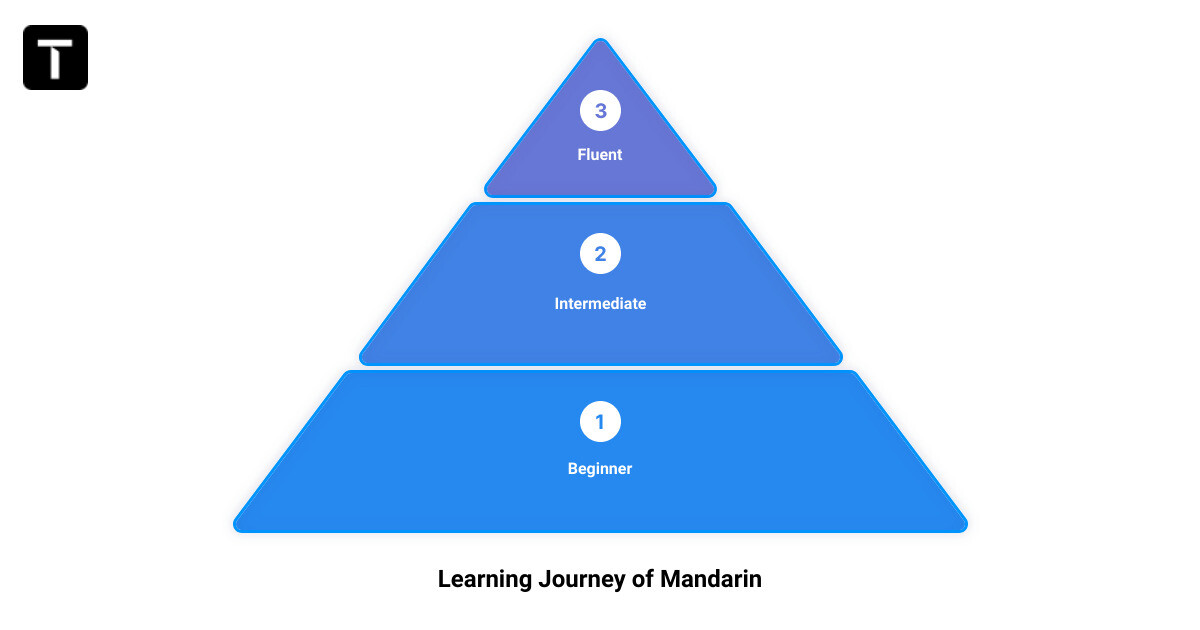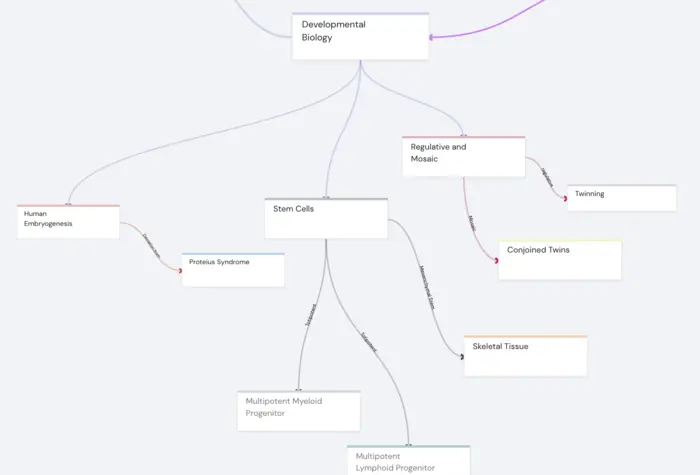Introduction: Why Mandarin?
The allure of Mandarin is undeniable. As the most spoken language worldwide, with an estimated 1.28 billion speakers, it opens up a world of opportunities and experiences. But why should you, a lifelong learner, commit to learning Mandarin? Let's delve into the reasons.
The Importance and Benefits of Learning Mandarin
As a gateway to one of the oldest civilizations in the world, learning Mandarin enriches not only your travel experiences but also your understanding of a rich and vibrant culture. Imagine being able to freely converse with locals while exploring the bustling markets of Beijing, or confidently leading a business meeting with Chinese partners in Shanghai. Mandarin proficiency also opens the door to a plethora of practical opportunities in thriving sectors such as electronics, technology, and manufacturing.
As Nelson Mandela once said, "If you talk to a man in a language he understands, that goes to his head. If you talk to him in his language, that goes to his heart." Learning Mandarin, therefore, is an invitation to a deeper understanding of the world's most populous nation, its rich history, vibrant culture, and dynamic economy.
Beyond cultural immersion and career advancement, learning Mandarin also offers cognitive benefits. Studies show that learning a new language can improve brain function and foster the development of cognitive skills. It's not just about language acquisition, but also about personal growth.
Debunking the Myth: Is Mandarin Really Difficult to Learn?
A common misconception is that Mandarin is an incredibly challenging language for English speakers to learn. The unfamiliar characters, tonal nature, and seemingly complex grammar structure often intimidate potential learners. However, this belief is largely a myth.
Mandarin Chinese is indeed different from English, but it's not as hard as you might think. The language has a logical structure, and once you understand the basics and embrace the differences, you will find it manageable and even enjoyable to learn. The key lies in the right approach and consistent practice.
So, are you ready to unlock the secrets of Mandarin and embark on a journey to learning the language? Let's demystify the process, uncover effective learning strategies, and kickstart your Mandarin learning journey.

How to Learn Mandarin by Yourself: A Comprehensive Guide
You've decided to learn Mandarin, and you're ready to take the reins of your language learning journey. But where do you start? Good news: mastering Mandarin on your own is not only possible, it's also a rewarding experience that offers immense flexibility. Below, we'll explore strategies to set you up for success.
Starting with Pinyin: The Foundation of Mandarin Pronunciation
When learning Mandarin, the first stepping stone is Pinyin. Pinyin is a Romanized system for Chinese characters and serves as a critical tool for beginners. This system helps you familiarize yourself with Mandarin's unique sounds, making it a lot easier to pronounce words correctly.
Remember, mastering Pinyin is more than just getting the hang of individual sounds. It's about understanding the nuances of tones and how they can change the meaning of a word. To ensure accuracy in communication, take this step seriously and dedicate ample time to practice and perfect your pronunciation.
The Importance of Tone Pairs in Mandarin
In Mandarin, the tone you use can change the meaning of a word entirely. That's why understanding tone pairs is crucial. A tone pair is a combination of two tones that create a unique sound pattern in conversation.
By practicing tone pairs, you can significantly improve your listening and speaking skills. This step will also help you understand how different tones interact and change in conversation, making you more confident and fluent when speaking Mandarin.
The Role of Visualization and Mnemonics in Learning Chinese Characters
When it comes to learning Chinese characters, visualization and mnemonics are your best friends. Visualizing a character and its meaning can help you remember it better. Similarly, mnemonics can simplify the learning process by linking a specific character to a memorable image, phrase, or story.
For instance, the Chinese character for "person" (人) looks like a walking man. Associating this image with the character can make it much easier to remember. So, unleash your creativity and start visualizing!
The Significance of Character Components in Mandarin
Mandarin characters might seem intimidating at first, but once you understand their components, they become much more manageable. Each character is composed of different components or "radicals" that can provide clues about its meaning or pronunciation.
By learning these components, you can start recognizing patterns and connections between different characters. This strategy will not only boost your comprehension but also make the process of learning new characters significantly faster and more enjoyable.
In conclusion, when you're setting out to learn Mandarin by yourself, remember to start with Pinyin, practice tone pairs, utilize visualization and mnemonics, and understand character components. These steps, combined with consistent practice, will set you up for success in your Mandarin learning journey.

The Timeframe: How Long Does It Take to Learn Mandarin?
The journey to Mandarin fluency is not a race, but an expedition filled with rich cultural insights and rewarding mastery of a complex language. How quickly you navigate this path largely depends on your dedication, consistency, and the effectiveness of your learning strategy.
Understanding the Learning Curve: From Beginner to Fluent
Mandarin is not a language you can master overnight or even within a few months. It requires consistent effort over a significant amount of time. Depending on your dedication and the amount of time you can commit each day, it could take anywhere from 4-7 years to become fluent in every aspect of the language. This translates to roughly 2200 to 4000 hours of study if you spend at least an hour and a half every day. However, fluency in some areas might come faster than others depending on how you focus your study time.
Remember, the journey to Mandarin proficiency is personal and your pace doesn't need to match anyone else's. Celebrate every small victory along the way and don't be disheartened by occasional setbacks.
The Importance of Consistency and Regular Practice
Consistency is key in language learning. Our brains can only absorb so much information at a time, and regular repetition is crucial for transferring new knowledge into our long-term memory. A consistent 30-minute daily study session is more beneficial than sporadic three-hour study marathons.
Creating a personalized study schedule that outlines your daily tasks and activities can help ensure consistency. This may involve listening to a segment of China Radio International for 10 minutes every morning or diving into a new chapter of a Mandarin book each week. Once studying becomes a daily habit, your commitment to learning will naturally strengthen. Your learning journey should be flexible and adaptable to your progress and needs.
To conclude, the timeframe to learn Mandarin is not set in stone. It is a challenging language, but with understanding, consistency, and regular practice, you can master it. Remember, every step forward, no matter how small, signifies progress, so embrace the journey and celebrate every victory along the way.
Age is Just a Number: Learning Mandarin at Any Age
No age is a barrier when it comes to learning a new language. Mandarin is no exception to this rule. Let's dive into why this is the case and explore some inspiring success stories of people who have mastered Mandarin later in life.
The Science Behind Adult Language Learning
Often, we hear that children are more adept at learning languages. While it's true that children can pick up languages more easily due to their brain's high plasticity, adults are not at a disadvantage. The beauty of the human brain is its ability to learn and adapt at any age.
In fact, adults have certain advantages when it comes to language learning. They can understand complex concepts, apply learning strategies more effectively, and are usually more motivated and disciplined. Adults, unlike children, have the benefit of previous language learning experiences. They can leverage their knowledge of their native language to understand and learn a new one[^1^].
Moreover, the assumption that you need to be young to learn Mandarin is one of the common myths that has been debunked[^1^]. So, if you're an adult and have been holding back from learning Mandarin thinking it's too late, it's time to set those fears aside.

Success Stories: People Who Learned Mandarin Later in Life
Inspirational stories of people mastering Mandarin at an advanced age are not hard to find. These individuals prove that age is just a number when it comes to learning this fascinating language.
Take Benny Lewis, the founder of Fluent in 3 Months[^2^], as an example. He began his language learning journey in his 20s, and now speaks multiple languages, including Mandarin. His philosophy is to dive right into speaking and practicing the language from day one.
Another example is the countless members of the military, government employees, and law enforcement officials who learn Mandarin at the Defense Language Institute Foreign Language Center[^1^]. Many of these individuals start learning Mandarin as adults and achieve impressive levels of fluency.
These stories serve as a reminder that it's never too late to start learning Mandarin. With the right mindset, effective strategies, and consistent effort, you too can conquer the art of Mandarin, no matter your age.
[^1^]: Unlocking the Secrets: A Comprehensive Guide on How to Learn Mandarin | Traverse [^2^]: Unlock the Puzzle: Overcoming Common Challenges in Learning Chinese | Traverse

Utilizing Technology: How Traverse and Mandarin Blueprint Can Help
As we continue our exploration of mastering Mandarin, it's time to delve into the innovative tools that can supercharge your learning experience. Traverse and Mandarin Blueprint are two platforms that infuse cognitive science into language learning, offering unique tools such as mind mapping, spaced repetition flashcards, connected note-taking, and the ability to import Anki decks.
The Power of Mind Mapping in Language Learning
Mind mapping is a powerful tool in understanding Mandarin grammar. It allows you to visually organize and draw connections between ideas, enhancing your understanding of Chinese characters. Traverse integrates mind mapping into its learning approach, helping to create a deep, interconnected understanding of Mandarin by visualizing the language's structure[^1^].
Spaced Repetition Flashcards: A Proven Method for Memorizing Chinese Characters
Spaced repetition is a scientifically proven method for long-term memory retention, and it's particularly useful for mastering Chinese characters. This involves revisiting information at increasing intervals over time, which aids in cementing the recall of Chinese characters, words, and phrases. The Traverse app incorporates spaced repetition flashcards, offering a seamless way to review and test your knowledge[^1^].
Connected Note-Taking: Enhancing Your Mandarin Learning Experience
Another technique that can significantly enhance your Mandarin learning process is connected note-taking, or mind mapping. This strategy allows you to create a mental map that facilitates easier recall, especially beneficial for understanding the complex structure of Mandarin grammar[^1^].
Importing Anki Decks for Continued Learning
Finally, the ability to import Anki decks is another feature offered by Traverse. Anki is a program that helps you remember things easily, and by importing Anki decks into Traverse, you can continue reviewing and reinforcing your Mandarin vocabulary and characters[^1^].
In conclusion, utilizing technology in your Mandarin learning journey can significantly enhance your study efficiency and language retention. The integration of cognitive science-based methods in platforms like Traverse and Mandarin Blueprint offers an innovative approach to Mandarin learning that is both effective and engaging.
Practical Tips for Learning Mandarin
Diving into the realm of Mandarin learning doesn't have to be overwhelming. Here are some practical, science-backed strategies to help you navigate the intricate waters of the Mandarin language.

Listening to Mandarin: The Key to Understanding the Language
Immerse yourself in the rhythm, tone, and intonation of Mandarin. This could be as effortless as listening to Mandarin podcasts, music, or even watching Chinese dramas[^1^]. The more you tune in, the more you will naturally pick up the language's nuances. So, make it a habit to listen to Mandarin content regularly.
Memorizing Chinese Characters: A Daily Habit
Mandarin is a character-based language, making character memorization as vital as picking up vocabulary and grammar[^1^]. The key is to recognize the patterns in these characters, which makes memorizing them much easier. Incorporate daily practice with learning tools that offer spaced repetition flashcards for the most frequently used words, such as Traverse.
Recognizing Patterns: A Simplified Approach to Mandarin Grammar
Don't let complex grammar rules bog you down. Focus on understanding Mandarin sentence structures and look for common phrases and sentence patterns[^1^]. This pattern-recognition approach can often be more effective than trying to memorize a list of rules.
Reading in Chinese: Expanding Your Vocabulary and Comprehension
Reading extensively in Mandarin can do wonders for your language skills[^1^]. It not only enhances your vocabulary but also reinforces grammatical structures and helps you understand the context in which words and phrases are used. Start with simple content like children's books and gradually move on to more complex texts.
Speaking Mandarin: Practice Makes Perfect
Finally, the most rewarding part of learning any language – speaking it! Speaking Mandarin regularly is the best way to reinforce what you've learned[^1^]. Whether you're practicing with a language partner or talking to yourself, every time you use the language, you're getting comfortable with it. Remember, making mistakes is an essential part of the learning process, so don't be afraid to stumble.
By incorporating these practical tips into your Mandarin learning journey, you'll be well on your way to mastering the language. The key is to remain consistent, patient, and enjoy the journey as you unlock the secrets of Mandarin.
Conclusion: Your Journey to Learning Mandarin Starts Now
As we wrap up this comprehensive guide, remember that learning Mandarin is not just about memorizing characters or perfecting pronunciation. It is a journey, an adventure into a rich and vibrant culture that spans over 20% of humanity and has significantly influenced world history. The process might seem overwhelming at times, but with the right tools, strategies, and mindset, you can conquer the Mandarin mountain.
Embracing the Challenge: The Joy of Learning Mandarin
Learning Mandarin may be a challenge, but it's a rewarding one. Every character you learn, every sentence you speak, and every conversation you hold brings you one step closer to unlocking the secrets of Mandarin Chinese. It is not just a journey of language mastery but also of personal growth and broadening your horizons. Each step forward is a celebration of your determination, resilience, and love for lifelong learning. So, embrace the challenge, savor the joy of learning, and remember, as Confucius wisely said, "It does not matter how slowly you go as long as you do not stop."
The Next Steps: How to Continue Your Mandarin Learning Journey
Keep going, keep learning, and most importantly, keep enjoying your Mandarin learning journey. Stay consistent with your learning, review regularly, and keep pushing your boundaries. Harness the power of progressive learning methods, immerse yourself in the language, and take your Mandarin skills to new heights with tools like Traverse.
Remember, every conversation, every mistake, every new word is a step forward. Don't be afraid of making mistakes; they're an integral part of the learning process. You're on the path not only to becoming a proficient Mandarin speaker but also a global citizen with an appreciation for one of the world's oldest and most influential cultures.
Your journey to awesome Chinese begins here. Happy learning!

